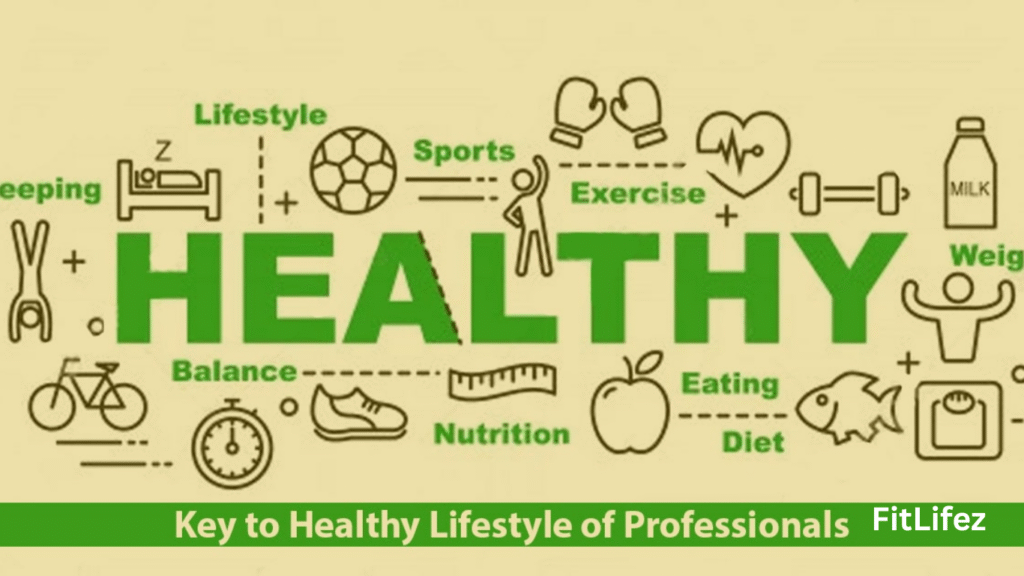Introduction
Wellness is more than just being free from illness. It is about living a healthy, balanced, and fulfilling life in all aspects. Wellness categories help us understand different areas of life that need attention for overall health. By focusing on these categories, you can improve not only your body but also your mind, relationships, work, and future. In this article, we will explore the main wellness categories, their importance, and practical tips to achieve balance in each one.
1. Physical Wellness
Physical wellness is the foundation of good health. It involves taking care of your body through exercise, nutrition, sleep, and regular medical check-ups. A strong and healthy body supports all other areas of wellness.
Wellness is more than just being free from illness. It is about living a healthy, balanced, and fulfilling life in all aspects. Wellness categories help us understand different areas of life that need attention for overall health. By focusing on these categories, you can improve not only your body but also your mind, relationships, work, and future. In this article, we will explore the main wellness categories, their importance, and practical tips to achieve balance in each one.
Importance of Physical Wellness
- Prevents chronic diseases like diabetes, heart disease, and obesity.
- Improves energy, stamina, and productivity.
- Enhances mood and mental clarity.
Tips for Physical Wellness
- Exercise at least 30 minutes daily (walking, yoga, gym, or sports).
- Eat a balanced diet with fruits, vegetables, proteins, and whole grains.
- Stay hydrated by drinking enough water.
- Get 7–9 hours of quality sleep each night.
- Avoid harmful habits like smoking or excessive alcohol use.
When you maintain your physical wellness, you build a strong foundation for other categories of wellness to flourish.
2. Mental Wellness
Mental wellness focuses on keeping your mind sharp, active, and healthy. It involves how you think, learn, and make decisions. A strong mind allows you to deal with challenges more effectively.
Importance of Mental Wellness
- Boosts memory and concentration.
- Helps in problem-solving and decision-making.
- Prevents mental fatigue and burnout.
Tips for Mental Wellness
- Challenge your brain with puzzles, reading, or learning new skills.
- Practice stress management through meditation or journaling.
- Take breaks during work to refresh your mind.
- Limit screen time and avoid information overload.
- Seek professional help if you feel mentally exhausted or overwhelmed.
Good mental wellness improves your ability to focus, learn, and grow.
3. Emotional Wellness
Emotional wellness is about understanding and managing your feelings. It helps you deal with stress, build resilience, and create healthy relationships.
Importance of Emotional Wellness
- Builds self-confidence and self-awareness.
- Reduces stress, anxiety, and depression.
- Strengthens personal and professional relationships.
Tips for Emotional Wellness
- Recognize and accept your emotions instead of ignoring them.
- Talk to trusted friends or family when you feel stressed.
- Practice gratitude and positive thinking.
- Avoid negative self-talk and replace it with encouragement.
- Develop coping strategies for life’s challenges.
When you maintain emotional wellness, you handle life’s ups and downs with more strength and peace.
4. Social Wellness
Humans are social beings, and healthy relationships are vital for overall wellness. Social wellness means building and maintaining meaningful connections with others.
Importance of Social Wellness
- Provides support during stressful times.
- Enhances happiness and reduces loneliness.
- Builds a sense of belonging and community.
Tips for Social Wellness
- Spend quality time with family and friends.
- Communicate openly and respectfully with others.
- Join community groups, clubs, or volunteer activities.
- Surround yourself with positive and supportive people.
- Learn to set healthy boundaries in relationships.
Strong social connections make life more meaningful and enjoyable.
5. Spiritual Wellness
Spiritual wellness is about finding purpose, meaning, and peace in life. It does not only mean religion but also values, beliefs, and inner balance.
Importance of Spiritual Wellness
- Brings a sense of direction and fulfillment.
- Encourages gratitude and kindness.
- Reduces stress through inner peace.
Tips for Spiritual Wellness
- Practice meditation, prayer, or mindfulness.
- Spend time in nature to feel connected.
- Reflect on your values and live according to them.
- Keep a gratitude journal.
- Engage in activities that bring peace and joy.
When you nurture your spiritual wellness, you live a life filled with purpose and calmness.
6. Occupational Wellness

Work is a big part of life, and occupational wellness is about finding balance and satisfaction in your career.
Importance of Occupational Wellness
- Increases job satisfaction and motivation.
- Reduces workplace stress and burnout.
- Improves work-life balance.
Tips for Occupational Wellness
- Choose a career aligned with your values and strengths.
- Set professional goals and work towards them.
- Take breaks to avoid burnout.
- Communicate with colleagues effectively.
- Maintain a balance between work and personal life.
When you are satisfied at work, it positively affects your mental and emotional wellness.
7. Environmental Wellness
Environmental wellness is about living in harmony with your surroundings. A clean, safe, and healthy environment improves overall well-being.
Importance of Environmental Wellness
- Reduces health risks caused by pollution.
- Promotes mental relaxation.
- Creates a sustainable future for coming generations.
Tips for Environmental Wellness
- Keep your home and workplace clean.
- Use eco-friendly products and reduce waste.
- Recycle and conserve natural resources.
- Spend time outdoors for fresh air and relaxation.
- Support efforts to protect the environment.
Taking care of your environment means taking care of yourself and others.
8. Financial Wellness
Financial stress can affect both physical and mental health. Financial wellness is about managing money wisely for present and future security.
Importance of Financial Wellness
- Reduces stress related to money problems.
- Provides stability and freedom of choice.
- Helps in long-term planning and security.
Tips for Financial Wellness
- Create and follow a budget.
- Save a portion of your income regularly.
- Avoid unnecessary debt and spending.
- Plan for emergencies with savings or insurance.
- Invest wisely for the future.
Financial wellness ensures peace of mind and a stable lifestyle.
9. The Connection Between Different Wellness Categories
Wellness categories do not work separately; they are deeply connected. For example, if your financial wellness is weak, you may experience stress and anxiety, which affects your emotional and mental wellness.
Similarly, lack of physical activity can lower your energy and focus, making it harder to succeed in your career or maintain healthy social relationships. By improving even one category, you can positively impact others.
For instance, regular exercise (physical wellness) reduces stress (emotional wellness), sharpens your thinking (mental wellness), and can even improve workplace performance (occupational wellness). This shows why wellness should be approached as a balanced lifestyle, not just focusing on one area while ignoring others. Understanding these connections helps in building a stronger and healthier life overall.
10. Common Challenges in Maintaining Wellness
While the idea of wellness sounds simple, many people face difficulties in maintaining balance. Busy schedules, job pressure, financial struggles, or lack of awareness often lead to neglecting certain wellness categories.
For example, someone may focus on their career but ignore their social or physical wellness, which eventually causes burnout or health problems. Another common challenge is inconsistency—starting healthy habits but not following them regularly.
Social media and technology can also affect wellness by reducing real social interaction and increasing mental stress. To overcome these challenges, it is important to set realistic goals, make small but consistent lifestyle changes, and be patient with the process. Wellness is a lifelong journey, not a quick fix.
11. How Technology Affects Wellness
Technology plays a big role in modern life, and it impacts wellness both positively and negatively. On the positive side, fitness apps, meditation guides, and online health communities support physical, emotional, and mental wellness. Technology also improves occupational wellness by enabling remote work and flexible schedules.
However, excessive use of smartphones, social media, and screen time can harm mental and emotional wellness. People may feel isolated, anxious, or develop poor sleep patterns due to digital overload. The key is balance—use technology as a tool to support wellness without letting it control your lifestyle. Setting screen time limits, practicing digital detox, and using apps wisely can help improve overall well-being.
12. The Role of Nutrition in Multiple Wellness Categories
Nutrition is often seen as part of physical wellness, but it influences almost every category of wellness. Eating a balanced diet rich in vitamins, proteins, and minerals not only strengthens the body but also boosts mental clarity, emotional stability, and even financial wellness.
For example, healthy meals at home cost less than frequent junk food or processed meals, improving financial balance. Proper nutrition also affects occupational wellness since a well-fed brain performs better at work.
Emotional wellness is closely linked too—nutrient-rich foods support mood regulation and reduce stress. This shows that nutrition is not just about physical health but also a pillar for total wellness. Simple steps like cooking at home, avoiding processed foods, and eating more whole foods can transform many aspects of life.
13. Practical Steps to Start Your Wellness Journey
Many people know the importance of wellness but struggle with where to start. The best way is to take small, consistent steps in different categories. For physical wellness, begin with a short daily walk. For mental wellness, spend 10 minutes reading or practicing mindfulness.
For emotional wellness, try writing down three things you are grateful for every night. Improve financial wellness by tracking expenses and saving a little each month. Build social wellness by reconnecting with one friend each week. The secret is not perfection but progress. Over time, these small steps create powerful results in every area of life. Wellness is about creating habits that bring balance, peace, and long-term happiness.
Conclusion
Wellness is not just about physical health; it is about balance in all areas of life. The eight categories of wellness—physical, mental, emotional, social, spiritual, occupational, environmental, and financial—are all connected. By working on each category, you create a strong and healthy foundation for overall well-being. Small daily habits such as exercising, managing stress, saving money, or building strong relationships can make a big difference in your life.
If you want to live a fulfilling, happy, and balanced life, focus on these wellness categories and make positive choices every day.
Read More:

